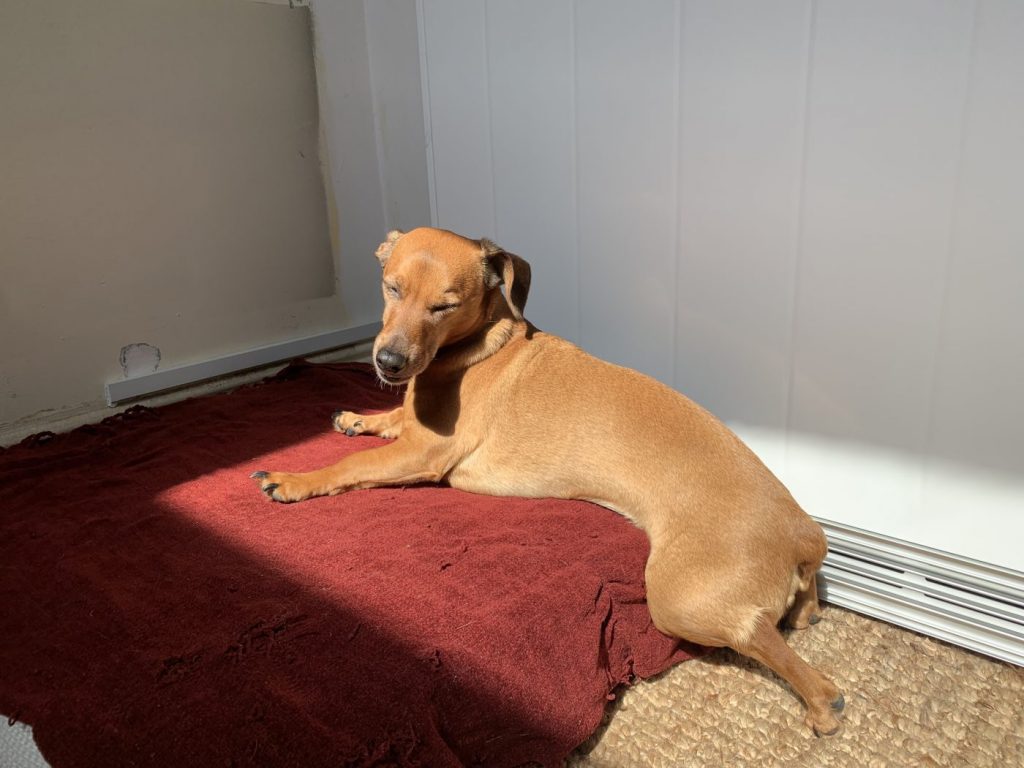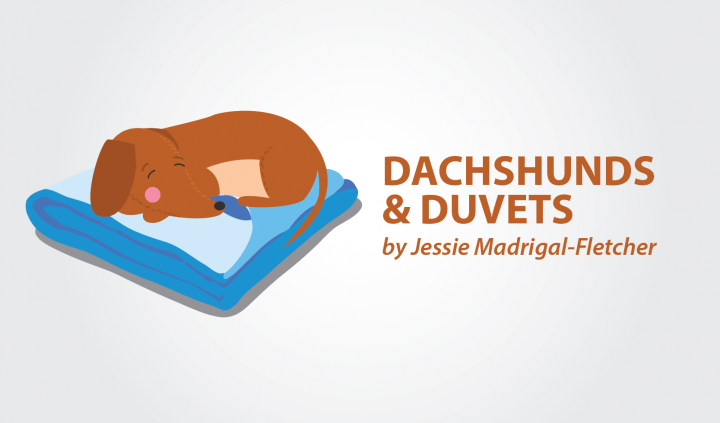Last week, I traveled to London. I can’t say I hated the trip. It was sunny, a dog sat next to me on the train, and — bread almighty! — a soft pretzel shop was at my terminus, Clapham Junction. I went there to see an osteopath who specializes in women’s health, particularly endometriosis.
As I lay on the treatment bed half-naked, I soon realized the osteopath in question knew a lot about endometriosis. This made me instantly comfortable, even though three other members of his team were in the room.
The specialist listened to me without rolling his eyes or making judgments. Then, he explained to his colleagues the pain I was probably in and how it likely affected my life. He pointed at the burn marks on my stomach and said, “Every endometriosis patient I see has those same marks. It hurts so much they burn themselves with their hot water bottles.”
I wanted to hug him. I didn’t, as I am socially awkward and uncomfortable plastering myself against others, but also because I was half-naked.

After acknowledging the messy state of my body, the osteopath advised me to come back for further treatment. He believed he could help me alleviate my pain. This made my eyes well up, as sometimes the promise of relief feels like winning the lottery. However, as I boarded my train home, I began wondering whether osteopathy was for me, mainly because it would involve invasive treatment. Internal pelvic therapy, to be specific.
In the field of endometriosis, internal pelvic therapy can involve the massage of trigger points inside the body via the vagina. It won’t cure the disease, but it is supposed to alleviate painful symptoms. Unsurprisingly, many fellow patients have suggested this line of treatment to me. The invasive nature of this technique is shocking to many women, but not so much to those of us who are hormonally challenged.
Endometriosis patients endure a great number of invasive situations.
Any new doctor we meet will usually examine us internally. If we are to have imaging tests, these will generally be transvaginal. Many of us will go through several surgeries, laparoscopic or otherwise, that require us to be under general anesthesia. More often than not, we are literally in the hands of others while at our most vulnerable.
As patients, we become used to being half-naked, answering intrusive questions, and placing a hefty amount of trust in professionals we barely know. Yet, it can be quite tough mentally.
I developed post-traumatic stress disorder after my catastrophic first period. As a 12-year-old, I was repeatedly and invasively examined by scary, strange men, with very little explanation. It took me years of therapy, including eye movement desensitization and reprocessing, to be able to tolerate those situations. I now have strategies in place: breathing exercises, focusing on a happy memory, or having a casual conversation while I’m examined.
To this day, it’s not something I enjoy. No one does.
This is an aspect of endometriosis that takes a lot out of each patient. A bad examination, an “off” remark, or a careless doctor can leave us with scars deeper than those on our bellies.
I’m not sure whether I’ll go ahead with the osteopathic treatment. The good news is that I have a couple of months to consider it. Yet, no matter how OK I am with endometriosis-related procedures, I don’t think it’s ever going to feel like my dignity is fully preserved.
How do you cope with the invasive side of this illness? Please share in the comments below.
***
Note: Endometriosis News is strictly a news and information website about the disease. It does not provide medical advice, diagnosis, or treatment. This content is not intended to be a substitute for professional medical advice, diagnosis, or treatment. Always seek the advice of your physician or other qualified health provider with any questions you may have regarding a medical condition. Never disregard professional medical advice or delay in seeking it because of something you have read on this website. The opinions expressed in this column are not those of Endometriosis News or its parent company, BioNews Services, and are intended to spark discussion about issues pertaining to endometriosis.

